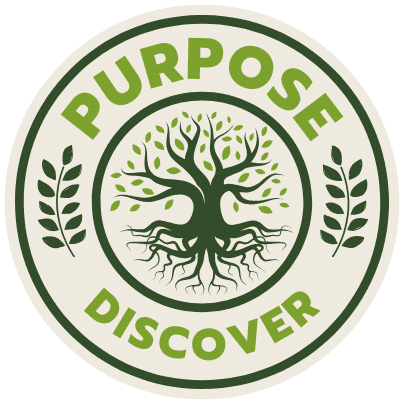Isn’t it curious how we often equate our job titles with who we are at our core? Like your business card or LinkedIn headline somehow distills your entire being and life’s meaning into a few words. The reality is far messier, and honestly, a lot richer. Your purpose, that deep-seated sense of why you get out of bed, rarely fits neatly into that little bubble labeled “job title.” It’s a wild, sprawling thing that defies job descriptions and instead thrives in the messy, unpredictable spaces of your life.
Think about it. You might be a “Marketing Manager,” “Teacher,” or “Software Developer,” but none of those titles capture the parts of you that wake up passionate or give your days meaning outside of work. Purpose is not a job; it’s a feeling, a force, a compass. Reducing it to your 9-to-5 role is like saying your entire identity should be defined by the flavor of coffee you ordered this morning. It’s a sliver, a surface-level snapshot of something much bigger.
Why do we fall into this trap? Because society loves shortcuts. It wants to package people neatly, make sense of them quickly. A job title is an easy shorthand, a status symbol, a way to size up someone in a glance. But that shorthand is a lie. It’s a tiny frame pinned to an enormous canvas. You are more than whatever label your paycheck carries.
The danger here is subtle but real. When your sense of purpose gets tangled up with your job title, you risk losing yourself if your role changes or disappears. What happens if you get laid off, decide to pivot careers, or simply burn out? If purpose and job title are the same, that can feel like losing a limb. Suddenly, you’re adrift in the vast sea of “who am I without this job?”
You might find yourself clinging desperately to that label, even if it no longer fits. Or worse, you let your purpose slip away because you think it lives only within the four walls of your office or the projects you manage. The truth is, purpose is not a job. It’s a thread woven through many aspects of your life, sometimes visible, often hidden.
Finding your purpose is more like gathering a bouquet of wildflowers than choosing a single rose. It grows from your values, your passions, the moments when you feel alive and connected. Those moments might happen at work, sure, but they might just as well happen volunteering, creating art, nurturing relationships, or even daydreaming on a park bench.
You don’t have to wear your purpose on your name tag. It can be tucked inside your hobbies, your dreams, the way you show up for friends, or how you make sense of the world. There’s freedom in that. A kind of permission to explore and evolve. Your purpose can morph over time in ways your job title rarely does.
Why Job Titles Can Feel Like a Trap
Ever met someone who instantly asked, “So, what do you do?” It’s the first question in most social and professional settings, loaded with assumptions and expectations. It’s as if the answer unlocks some secret code to your value and identity. But what if you don’t want to be boxed in so quickly? What if you’re still figuring out the “what” or if the “what” isn’t the whole story?
Job titles are sticky. They come with baggage—expectations about skills, status, income, and sometimes even personality. Imagine the pressure of feeling like your entire worth is tied to “Senior Account Executive” or “Graphic Designer.” When you start thinking of your purpose as that title, you might hesitate to try new things, afraid of losing that identity or disappointing others.
Holding onto a job title as your purpose can also blind you to opportunities. Maybe your dream involves writing, farming, teaching kids, or starting a podcast. But if your job title is the only thing that defines you, you might resist exploring those passions because they don’t “fit.” The truth is, purpose often hides in the spaces between roles or in side gigs that feel more like play than work.
How to Separate Your Purpose from Your Job Title
Start by asking yourself questions that don’t hinge on your career. What lights you up? When do you feel most connected to yourself or others? What kind of impact makes you feel like you matter? Sometimes, those answers will align with your job, but sometimes they’ll point you elsewhere.
Look back on moments when you felt truly alive—maybe it was coaching a friend through a tough time, volunteering at a local charity, or losing yourself in a creative project. Those experiences often carry hints toward your purpose. Notice the feelings, not the roles.
Practice talking about yourself beyond your job title. Instead of, “I’m a lawyer,” try, “I care deeply about justice and helping people find their voice.” That subtle shift opens space for your purpose to breathe. It also invites others to see you as a whole person, not just a role.
Explore what gives you meaning outside of work. Maybe it’s mentoring, gardening, activism, or storytelling. You might find your purpose lives there, and your job title is just how you pay the bills. This doesn’t diminish your work—it simply frees you from the notion that your whole life must revolve around it.
The Beautiful Mess of Purpose
Purpose is messy, sometimes contradictory, and always evolving. It’s not a neat package pinned to your chest but a living, breathing part of you that changes with experience, growth, and even setbacks. Clinging to a job title as a proxy for purpose feels safe but can be a cage.
The world is full of people who changed careers multiple times, discovered passions late in life, or found purpose in unexpected places. None of them fit neatly into a label. Purpose doesn’t ask for neatness. It asks for honesty and courage—the courage to explore, to fail, to redefine yourself.
Here’s a thought: What if your purpose isn’t a destination but a journey, with your job title as only one mile marker along the way? What if your real purpose is about how you influence others, the values you live by, or the joy you create—regardless of what your paycheck says?
Purpose Beyond Paychecks
There’s a grain of truth in wanting your job to align with your purpose because work can be fulfilling and energizing. But tying purpose exclusively to your job risks making your self-worth dependent on external factors like promotions, raises, or job security. That’s a shaky foundation.
Purpose rooted in your values and passions is more resilient. It sustains you through career shifts, economic downturns, and the inevitable phases where work feels mundane. It reminds you who you are beyond the office, the cubicle, or the conference call.
If you’re feeling stuck, take a moment to reflect on where your energy flows naturally. What do you do when no one’s watching? That’s often where purpose hides. Your job title might one day change, but those core impulses, your unique way of being in the world, tend to stick around.
Final Thoughts: Lean Into the Complexity
Don’t sell yourself short by believing your purpose must fit into a neat job title. Life is too complicated and beautifully unpredictable for that. Purpose is bigger, quieter, and often found in the spaces you least expect. It’s in the way you listen, the kindness you show, the curiosity you nurture, and the courage you summon to be yourself.
If you want to dig deeper, sites like discover what your true purpose is offer thoughtful tools and perspectives that can help you untangle this messy question. The key is to give yourself permission to live beyond your job title, to embrace all the varied, rich parts of your life.
Remember, your job title might tell a story about your skills or career path, but it’s not the story of your soul. Your purpose is far more personal, far less tidy, and infinitely more powerful because of it. So go ahead—let your purpose roam free, wherever it wants to go.

